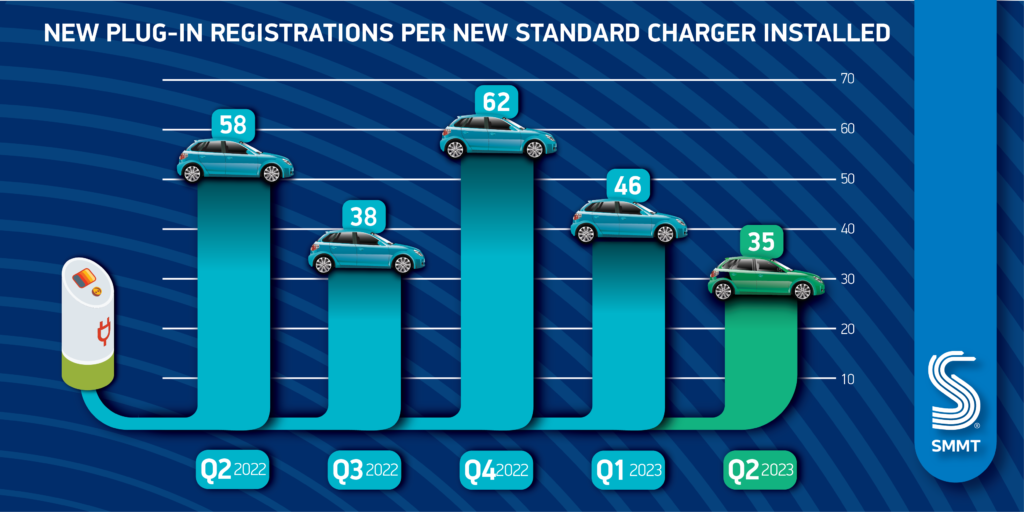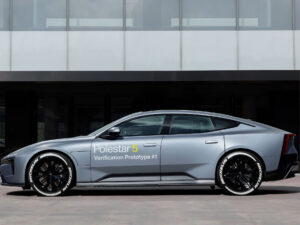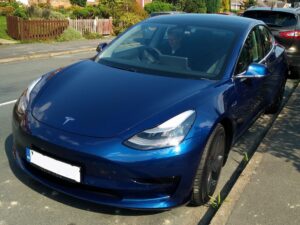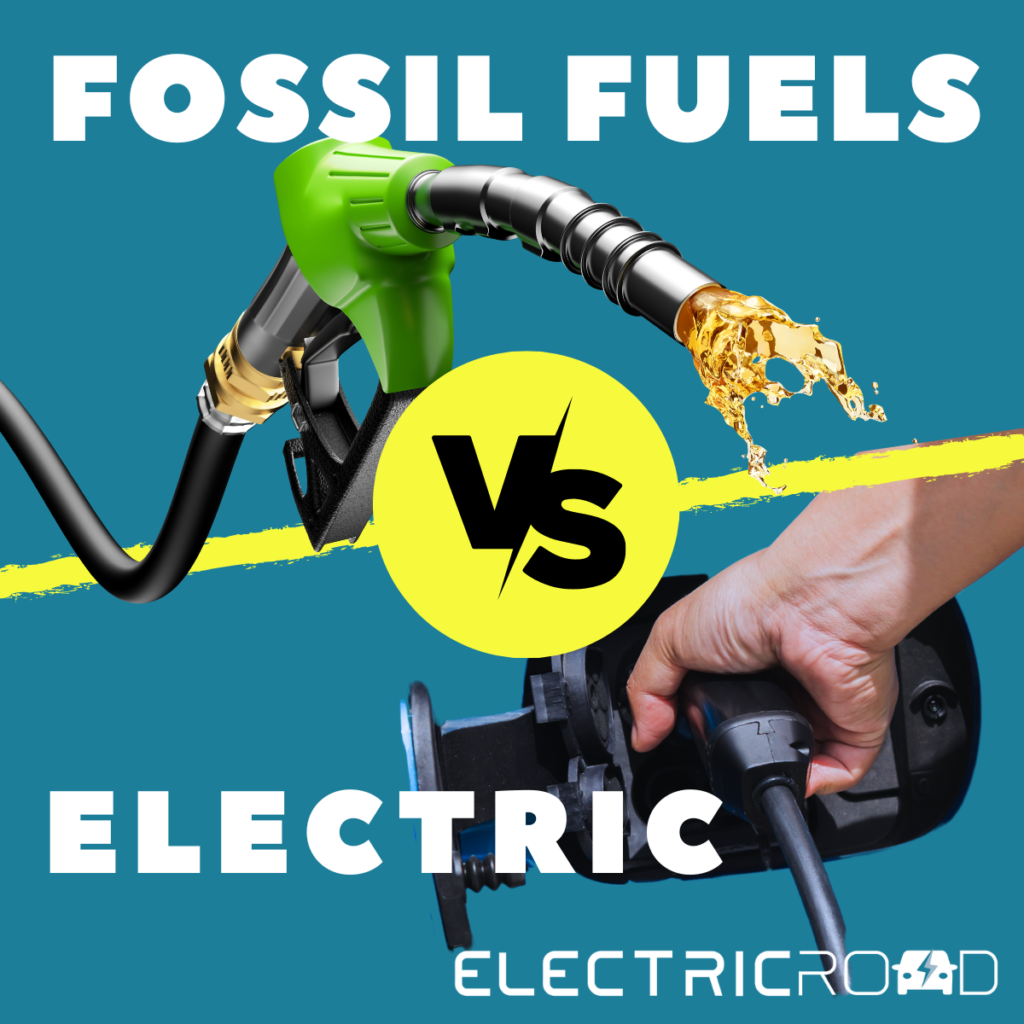The UK new car market grew 28.3% in July according to the the SMMT.
As a result, the market has enjoyed non-stop growth for a full year despite challenging economic conditions.
This was the best July performance since 2020, when pent-up demand for new cars was unleashed following three months of lockdown during the pandemic.1 Despite this continuous growth, however, the overall market year to date remains behind pre-pandemic levels.2
Company registrations drove the growth, as uptake by large fleets increased 61.9% to 80,961 units and business registrations rose 28.7% to 2,915 new vehicles. Private demand remained stable at 60,045 units (up 0.3%).
Electrified vehicles accounted for more than a third (35.4% of the market). Hybrid (HEV) volumes grew, although their overall market share fell to 11.3%. Plug-in hybrid (PHEV) registrations saw a significant uplift for the second month in a row as uptake rose 79.1% to account for 8.1% of the market.
The biggest increase, however, was for battery electric vehicles (BEVs), which recorded an 87.9% increase to account for 16.0% of all new registrations for the month, a market share broadly consistent with that seen so far this year.
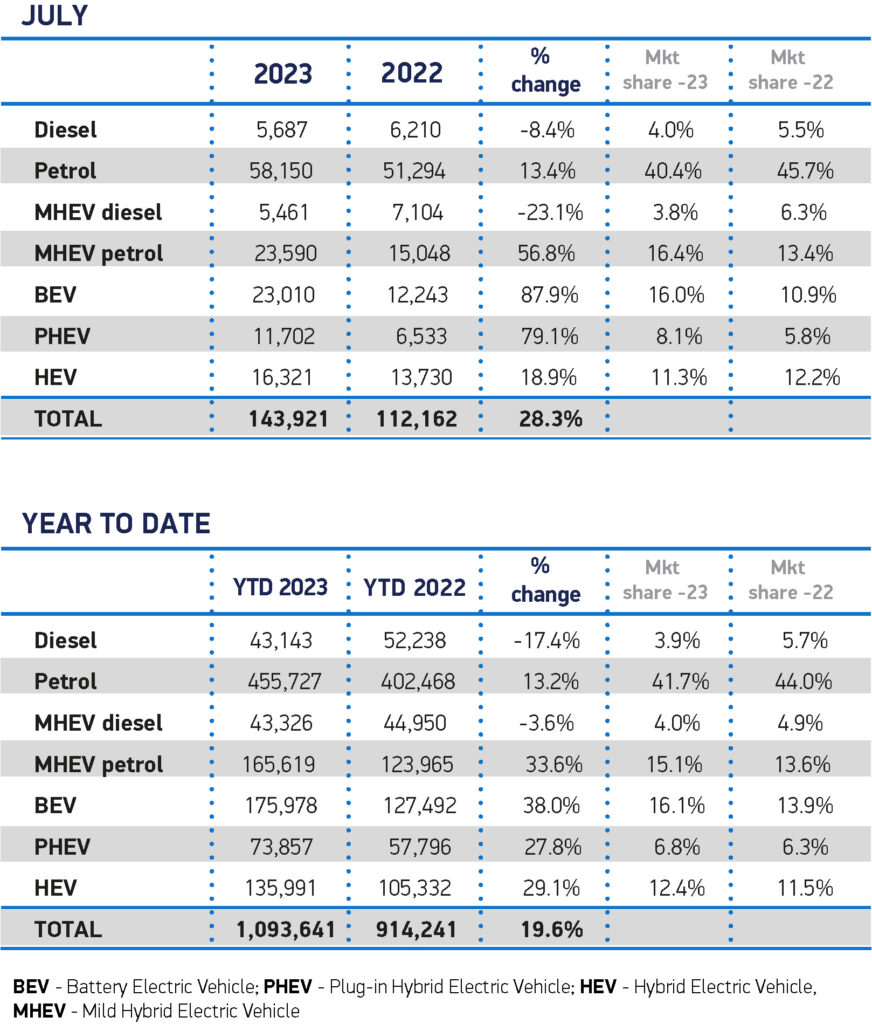
The demand for battery electric cars was such that a new one was registered every 60 seconds in the month. Furthermore, according to the latest market outlook published today, this will accelerate to one every 50 seconds by the end of the year, and up to one every 40 seconds by the end of 2024.3
Are you seriously considering your first or next EV? Then visit Electric Road’s CAR FINDER to get the right car for you!
While the growth in electric vehicles hitting UK roads is significant, it must move even faster if it is to outpace the rest of the market and enable the UK to meet ambitious but necessary environmental targets. To get even more consumers to make the switch, every means of support must be provided, from fiscal incentives to purchase reassurance and, most obviously, in ensuring drivers have full confidence that they will be able to charge wherever and whenever required, sustainably and affordably.
There were positive signs on this over the last quarter, as a record high of 3,056 new standard public chargers were installed.4 This was equal to one new charger for every 35 new plug-in vehicles registered, a significant improvement on the same quarter last year, when the ratio was one for every 58 cars.5
However, as government, charge point operators and the automotive industry all agree, reassuring drivers means building ahead of need. To reach the government’s minimum target of 300,000 charge points by 2030, the installation rate must treble to almost 10,000 chargers per quarter, every quarter.6
This can only be achieved if the obstacles to installation so commonly cited, arcane planning regulations, competing pressures on local authorities and delays to grid connections, are overcome. An overarching strategy, including a charge point mandate, is necessary to create the reliable, accessible and affordable charging network consumers deserve.
Notes
1July 2020: 174,887 registrations
2Jan-July 2019: 1,426,443 registrations
3 Based on DVLA working hours
4 DfT Electric vehicle charging device statistics: July 2023. Standard charger defined as 7-22kW
5 Q2 2023: 107,125 BEV + PHEV registrations, 3,056 standard charger installations. Q2 2022: 72,586 BEV+PHEV registrations, 1,241 standard charger installations.
6 Based on 44,020 chargepoints installed as of Q2 2023.


